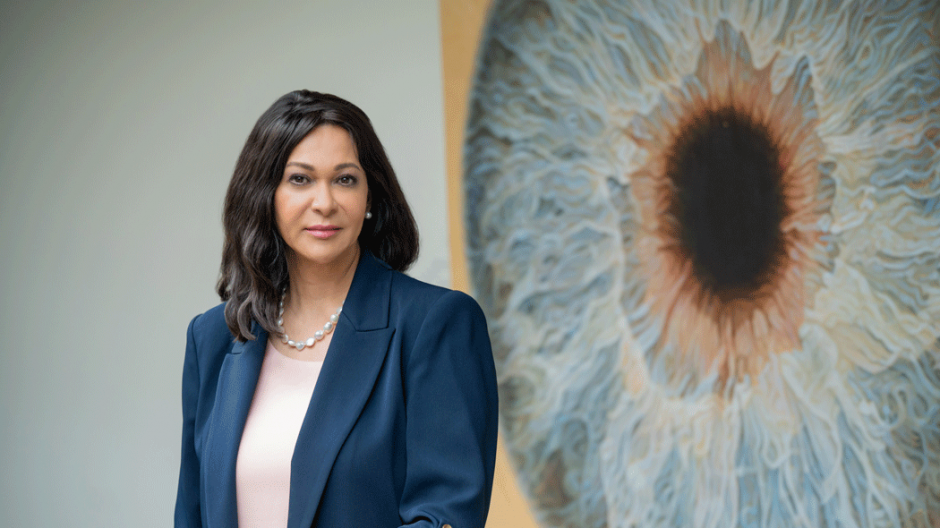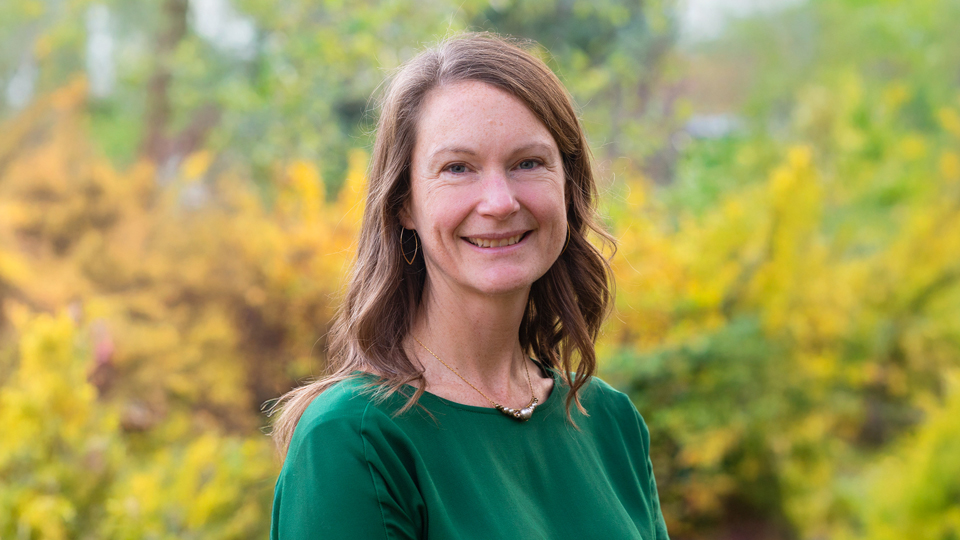
Decades ago as a UBC PhD student, Dr. Neeru Gupta trained with internationally-renowned scientist Dr. Stephen Drance, who became a mentor for her as she pursued a career in ophthalmology. Following years of training across Canada and the United States, and after building an accomplished career in glaucoma research, Dr. Gupta has returned to UBC to take on the same leadership role her mentor previously held.
As the new Head of UBC’s Department of Ophthalmology & Visual Sciences, Dr. Gupta brings a wealth of experience to the role. Most recently, she served as a professor of Ophthalmology and Vision Sciences and Chief of the Glaucoma Service at the University of Toronto, as well as the Dorothy Pitts Chair in Ophthalmology at St. Michael’s Hospital. She is currently President of the International Council of Ophthalmology, and President of the World Glaucoma Association.
Now, as Dr. Gupta settles back in at UBC, she is looking forward to building on the department’s strengths to ensure B.C. has the highest quality eye care and advances translational research that will prevent vision loss across the province and beyond.
Who inspires you and why?
Stephen Drance was an ophthalmology visionary. I was a family doctor in Powell River and then Winnipeg, and that’s when I was given a chance to work with him during my PhD research. The concept of an eye care centre didn’t exist in North America before Stephen helped build one here in Vancouver. People from around the world came to see what he had done — combining clinical care, surgery, and learner training in one place. It’s all about translating research to impact through close connections with patients.
Stephen transformed glaucoma care by making astute observations that no one else had paid attention to before. At a meeting years ago, he presented on optic disc hemorrhages, or small bleeds on the optic disc. Ophthalmologists around the world now look for those hemorrhages in every patient, as it is a risk factor for unstable eye diseases and requires increased care. This is only one example of Stephen’s many significant contributions that continue to improve glaucoma care today. To this day, these lessons appear in ophthalmology textbooks. He was a visionary who dared to dream big.
For you, what makes UBC different?
First, it’s the people, along with an incredible ethos of exploration, invention, entrepreneurship, and collaboration. It’s a future-thinking environment. I am thrilled by the possibility of positive change. That’s what gives me energy. The Faculty of Medicine’s Strategic Plan and its connection to UBC’s plans for the future is driving innovative health research and translating those innovations into better outcomes for patients. Research that matters really drives me.
Best piece of advice:
I always remember my father’s advice to me: “Follow your passions and the rest will follow.” And the second part of that is to dream big.
First job:
One summer I worked as a door-to-door vacuum salesperson.
Secret talent:
During medical school and internship training, I was a lead singer in a band.
What are your main goals or aspirations?
I want to harness the incredible talent and passion of our learners, faculty and staff to strengthen the department. The ultimate goal, whether we’re in the lab as researchers or in the classroom, is to do meaningful work. Together, we can ensure B.C. has the highest quality eye care and that we preserve sight for not only British Columbians, but Canadians and people around the world.
It’s not just making sure we have access to the best medicine and great clinicians, it’s also about making sure we are fulfilling our mission to advance science at a rapid pace and finding ways to accelerate that process. For me as a physician-surgeon, at the end of the day it’s about helping people preserve their sight, or treating their blinding disease.
Looking to the future, we need to help prevent vision loss in already vulnerable populations. When you think about inequities in care, it’s often most affecting Indigenous populations, women, as well as remote and economically disadvantaged communities. The burden of vision loss is highest in those sectors. So that’s where I’d like to direct a lot of our future efforts.
How do you like to recharge?
I love spending time with my boys, family and friends. Laughing with them and learning from them is my recharge. They’re my socket!
Favourite spot in BC?
Powell River is a beautiful place that I’m particularly connected to because I worked there as a family doctor. I also have great memories of ski trips in Whistler.
In honour of the International Women’s Day 2023campaign, would you like to share how you will help forge women’s equality?
I will help forge women’s equality by making the space for women to write their own scripts. It’s about making sure women are part of the conversations, part of the process, and part of the decisions. We need to ensure women are seen and celebrated everywhere. It’s definitely an active process.
Published: March 2023


